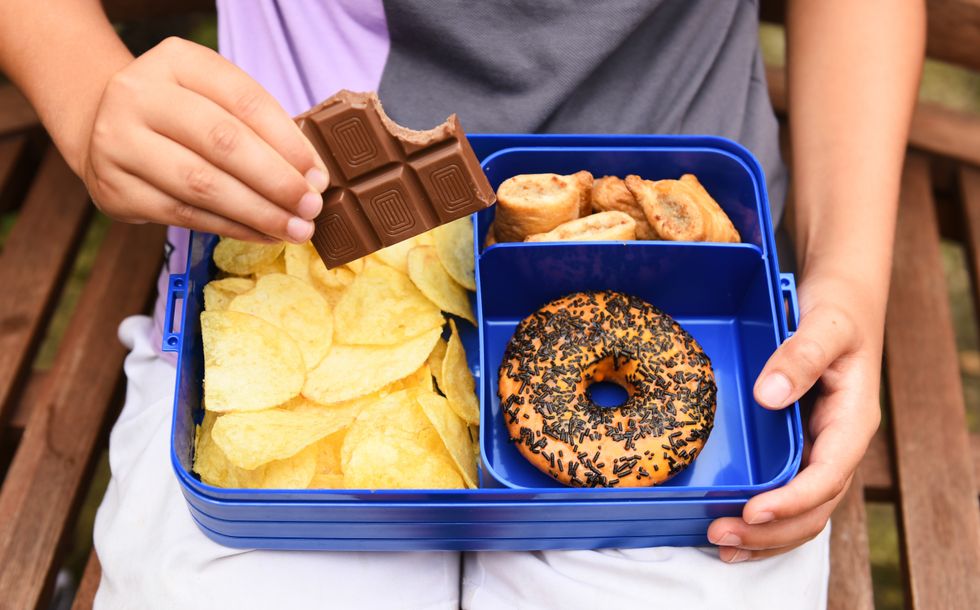Health campaigners are calling for a ban on cakes and biscuits in school lunches, following new analysis of sugar content in common snacks.
Action on Sugar, a group of health experts and nutritionists based at Queen Mary University of London, wants ministers to overhaul current school food standards that permit sugary treats during lunch hours.
Their latest analysis has found that some snacks contain up to 12 teaspoons of sugar, raising serious concerns about children's daily sugar intake.
The group argues that existing rules allowing desserts, cakes and biscuits as part of school lunches need urgent reform to protect pupils' health.
The analysis revealed particularly high sugar levels in popular chocolate products.
Ritter Sport marzipan was found to contain 51g of sugar per packet.

The same manufacturer's whole hazelnuts and white whole hazelnuts products contained 44g of sugar - equivalent to 11 teaspoons.
Action on Sugar highlighted how these sugar levels could quickly accumulate throughout a child's day.
A child consuming a cake at lunch, followed by a chocolate bar after school and two biscuits after dinner could intake as much as 23 teaspoons of sugar, the group warned.
Dr Kawther Hashem, Action on Sugar's head of research and impact, emphasised the urgency of the situation.
She said: "These findings reinforce the urgent need for a complete ban on cakes and biscuits currently permitted under the school food standards at lunchtime, as they are unlikely to align with current maximum sugar guidelines."
The campaign group warned that current school food standards may be driving children to exceed their daily sugar limits.
They called for schools to become "a sanctuary from unnecessary sugar" to help children grow up healthier.
The group also urged ministers to extend the sugar tax from soft drinks to other highly sugared products, including confectionery.
In response to the campaign, a government spokesman defended current policies.
They said: "We encourage all schools to promote healthy eating and provide nutritious food and drink."
The spokesman highlighted a new training programme for school governors to enhance their understanding of School Food Standards.
This initiative aims to ensure children have access to nutritious food throughout the school day.
The government emphasised its broader commitment to creating "the healthiest generation of children in our history."
It stressed its focus on shifting from treatment to prevention, including measures to limit schoolchildren's access to fast food.

 By GB News (World News) | Created at 2024-11-19 11:31:30 | Updated at 2024-11-19 13:30:39
2 hours ago
By GB News (World News) | Created at 2024-11-19 11:31:30 | Updated at 2024-11-19 13:30:39
2 hours ago








